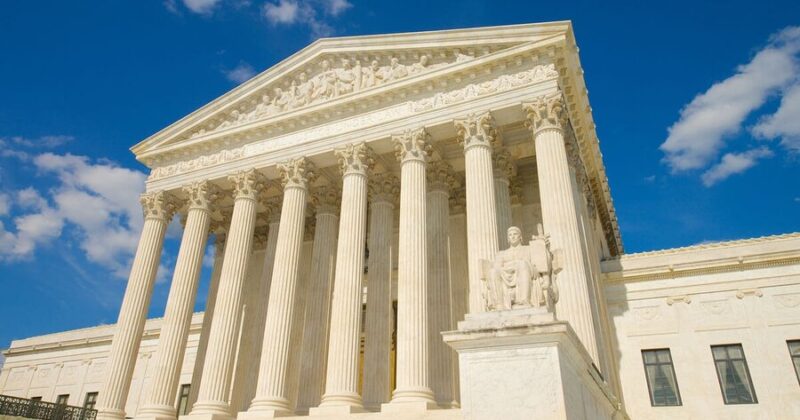On June 10, the Supreme Court decided to examine a major shareholder lawsuit alleging that Meta Platforms Inc., the parent company of Facebook, misled investors about a scandal involving data harvesting by Cambridge Analytica, a political consulting firm.
The Supreme Court’s eventual ruling in the case could have an effect on corporate disclosure standards going forward.
The lawsuit centers on a class action lawsuit related to securities fraud, stemming from the actions of the now-defunct UK-based Cambridge Analytica, which allegedly acquired and misused Facebook user data unlawfully. This information comes from Facebook’s submission to the nation’s highest court.
In December 2022, Meta agreed to pay $725 million to settle a class-action lawsuit that accused the company of allowing third parties, like Cambridge Analytica, to access the personal information of up to 87 million users. The incident was revealed to the public in 2018.
Cambridge Analytica, which had previously collaborated with then-candidate Donald Trump during his successful presidential campaign in 2016, gained access to personal data from millions of Facebook accounts without the users’ consent. This data was used to target and profile voters. The information was harvested through an app.
The scandal led to government investigations and Meta CEO Mark Zuckerberg was called to testify before Congress.
In 2019, Facebook agreed to pay $5 billion to settle a probe by the U.S. Federal Trade Commission regarding its privacy practices. Additionally, the company agreed to pay $100 million to resolve a proceeding by the U.S. Securities and Exchange Commission, which accused Facebook of misleading investors regarding the mishandling of their data.
At the same time, Meta is being investigated by the European Union for possible breaches of child safety rules on its Facebook and Instagram platforms.
The Supreme Court granted the petition for certiorari, or review, in Facebook Inc. v. Amalgamated Bank, in an unsigned order.
No justices dissented, and the court didn’t explain its decision. At least four of the nine justices must vote to grant the petition for it to advance to the oral argument stage.
The Supreme Court is set to review whether a federal appeals court made a mistake in greenlighting a multibillion-dollar lawsuit. This lawsuit is based on claims that Facebook, as it was known back then, artificially inflated its share prices by not properly disclosing that user data could be misused.
The investors claim that the controversy contributed to two 2018 price drops that led to the company losing more than $200 billion in market capitalization.
The U.S. Court of Appeals for the Ninth Circuit ruled against Facebook in the case at hand in October 2023.
Facebook is asking the Supreme Court to dismiss the lawsuit.
The federal district court dismissed the plaintiffs’ claims three times, but the Ninth Circuit Court of Appeals revived them. In its petition, Facebook argued that the Ninth Circuit had “adopted extreme outlier positions.”
“The Ninth Circuit’s decision will light a beacon for class-action lawsuits that would be dismissed in any other circuit,” the petition stated.
The respondent, Amalgamated Bank, argued the circuit court decision was correct and the Supreme Court should reject the appeal.
“There is no circuit conflict,” the bank said in a brief.
The 9th Circuit “applies the same rule as the other circuits Facebook cites: a statement is misleading if it treats a material risk as hypothetical when the risk has already materialized.”
The Supreme Court is expected to hear Facebook Inc. v. Amalgamated Bank in its new term that begins in October.
Share your thoughts by scrolling down to leave a comment.

